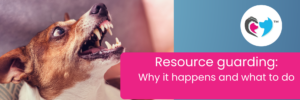Holidays and family gatherings are joyful occasions filled with food, laughter, and companionship. For pet owners, these celebrations often include their animal companions. However, ensuring your pet’s safety and well-being during these times requires careful planning and consideration. Here’s how you can safely include your pet in your holiday festivities.
1. Travel safety: Buckle up your pet
If your holiday celebrations involve travel, it’s essential to transport your pet safely. Unrestrained pets in vehicles can be a danger to both themselves and passengers. The following guidelines can help keep your pet safe:
- Use a pet seatbelt or a secured carrier to prevent injury in case of an accident.
- Never allow pets to sit on your lap while driving.
- Avoid letting dogs ride with their heads out of the window, as this can lead to eye or ear injuries.
- Plan for frequent stops on long journeys to allow bathroom breaks and hydration.
- Never leave your pet alone in a parked car, as temperatures can rise or drop dangerously fast.
2. Holiday foods: What your pet can and can’t eat
While sharing a meal is a big part of holiday traditions, not all human foods are safe for pets. Foods that are toxic or harmful to pets:
Foods to Avoid:
- Chocolate and sweets: Chocolate contains theobromine, which is toxic to dogs and cats. Sugar-free sweets with xylitol can cause severe hypoglycemia.
- Bones: Cooked bones, especially poultry bones, can splinter and cause choking or internal injuries.
- Onions and garlic: Found in stuffing and gravy, these ingredients can cause anemia in dogs and cats.
- Grapes and raisins: These can lead to kidney failure in dogs.
- Alcohol and caffeine: Both are highly toxic to pets and should be kept out of reach.
Pet-Friendly Alternatives:
- Plain turkey or chicken (boneless and unseasoned)
- Steamed vegetables like carrots, green beans, and pumpkin
- Special pet treats or homemade holiday-themed pet biscuits
3. Managing stress and overstimulation
Large gatherings, loud noises, and new faces can be overwhelming for pets. Create a safe space where your pet can retreat if they feel stressed. Tips for managing pet anxiety include:
- Setting up a quiet room with their bed, toys, and water.
- Playing calming music to reduce stress.
- Using pheromone diffusers or anxiety wraps if your pet is prone to anxiety.
- Keeping a consistent routine for meals and bathroom breaks.
4. Supervised socialization with guests
If your pet enjoys social interactions, introduce them to guests gradually. Some pets may be nervous around unfamiliar people, especially children. Supervised introductions can help:
- Inform guests about your pet’s temperament and any behavioral triggers.
- Allow pets to approach new people on their terms rather than forcing interactions.
- Teach children to be gentle and respect the pet’s space.
5. Holiday decorations and hazards
Festive decorations can be hazardous to pets if not properly managed. The Pet Poison Helpline warns pet owners about common risks:
- Tinsel and ribbons: These can cause intestinal blockages if swallowed.
- Holiday plants: Poinsettias, mistletoe, and holly are toxic to pets.
- Candles: Always place candles out of reach to prevent burns or accidental fires.
- Christmas tree safety: Secure the tree to prevent it from tipping over, and avoid using artificial snow sprays that can be toxic.
6. Fireworks and loud celebrations
New Year’s Eve, Independence Day, and other holidays with fireworks can be terrifying for pets. We suggest the following:
- Keep pets indoors in a secure, familiar area.
- Close windows and curtains to reduce noise exposure.
- Distract pets with treats, toys, or TV.
- Consider using calming supplements or consulting a veterinarian for extreme anxiety.
7. Pet-Friendly holiday activities
Incorporate your pet into family fun with safe and enjoyable activities, such as:
- A festive walk in a pet-friendly park.
- Holiday-themed pet photo sessions.
- Gift-giving with new pet toys or treats.
- Engaging in training games or puzzles to mentally stimulate them.
Including your pet in family holiday celebrations can be a joyful experience when done safely. By considering travel precautions, food safety, stress management, and environmental hazards, you can ensure your pet enjoys the festivities as much as you do. Remember, a happy and secure pet makes for a truly special holiday season!





